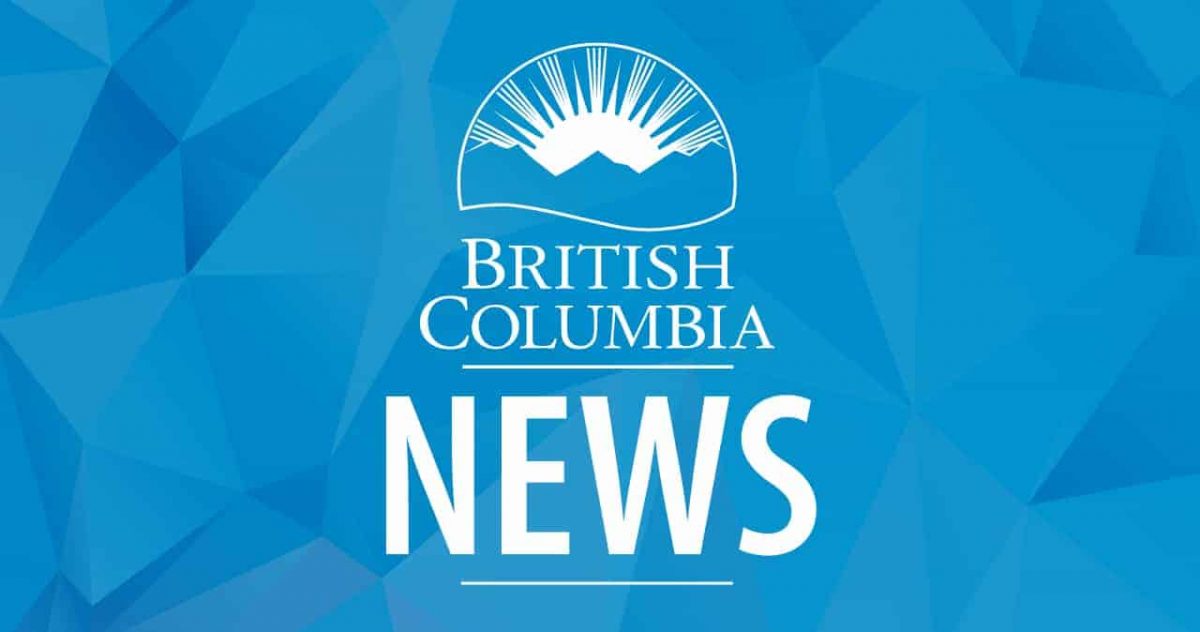
Innovative model of addictions care expands throughout B.C.
A made-in-B.C. model of addictions care, which is improving the way people access services, is expanding.
Road to Recovery establishes a seamless continuum of care for addictions from detox to treatment and after care. The expansion will include 100 substance-use treatment beds and outpatient services in all health authorities, as well as a single-access line to get connected to addictions care in each health-authority region.
“Every person’s journey to recovery is different so we need to make it easy for people to access the path that is right for them,” said Jennifer Whiteside, Minister of Mental Health and Addictions. “Road to Recovery brings together addiction services into one seamless model to provide care every step of the way. We’re expanding this model of care across the province so that when people courageously reach out for help, they are met with the right support, no matter where they live.”
Initially launched at St. Paul’s Hospital and the Vancouver region, Road to Recovery makes it easier for people to get the care they need, where and when they need it. With this expansion, anyone in B.C. will have the ability to call a single line to get information, receive an assessment, develop an individualized care plan and access treatment.
For those who need treatment, they may access detox services or longer-term treatment services, which are also available as a bed-based service or outpatient supports. Through every step, clients are supported by someone who can connect them to community after-care supports such as day programs, life-skills classes and peer-recovery groups to help them stay on their path to wellness after treatment.
“I had tried for years to get off drugs by myself, but I could never do it on my own,” said Philip Schulz, who spent about a week in Road to Recovery at St. Paul’s Hospital in December 2023. “When I got into Road to Recovery, the compassion, the medical care and the support from the staff were amazing so now I have my own place, a girlfriend and I’ve applied to become a peer worker at Road to Recovery. The experience there has changed my life for the better.”
Since its launch in fall 2023, Road to Recovery in Vancouver has been quickly connecting people with the treatment they need. From October 2023 until June 2024, more than 1,500 people were supported to access detox services across three sites in Greater Vancouver, including Road to Recovery. During that same time, the 14 Road to Recovery detox beds at St. Paul’s Hospital served 419 unique clients, with a median wait time of one day for those prioritized as urgent. Data from the Vancouver program will be used to inform the expansion so that everyone can access quality care, regardless of where they live in British Columbia.
“Since creating and implementing the Road to Recovery initiative at St. Paul’s Hospital and in the Vancouver Coastal Health region, we’ve seen a tremendous impact on our community and our ability to provide evidence-based, culturally safe addiction care in a timely manner,” said Dr. Seonaid Nolan, head of addictions medicine, Providence Health Care. “Treatment, harm-reduction and recovery services are now readily available for those who seek them and are integrated seamlessly into the substance-use continuum of care in a single setting. The impact of Road to Recovery has been transformative and we’re so very excited to see this model expand to other communities across B.C.”
With a commitment of nearly $154 million over the next three years, expanding Road to Recovery is another significant step toward building a comprehensive system of mental-health and addictions care for everyone in British Columbia. The Province has made historic investments to expand addictions services and add more treatment and recovery beds to support people with addictions along their journey to wellness.
Quotes:
Dr. Sharon Vipler, program director for Addiction Medicine and Substance Use Services, Fraser Health Authority –
“Road to Recovery will allow us to expand a thoughtful, intentioned and evidenced-based system of care. Our hope is that this system will provide a full continuum of care that can address individual needs at the time and place at which they are needed.”
Jinny Sims, MLA for Surrey-Panorama –
“After its successful launch in Vancouver, it’s great to see the Road to Recovery model expanding so that communities across B.C. can benefit. This model removes barriers for people accessing addictions care and bridges the gaps between detox, treatment and recovery services so no one gets left behind.”
Rachna Singh, MLA for Surrey-Green Timbers –
“Road to Recovery meets people where they are at and helps them access the right services at the right time. I’m pleased that more people will soon have access to the program in all areas of the province.”
Learn More:
For more information about the Road to Recovery model, visit:
https://news.gov.bc.ca/files/RecoveryGraphic.pdf
For more information about treatment and recovery services in B.C., visit:
https://news.gov.bc.ca/files/Road_to_Recovery.pdf
For more information about mental-health and substance-use supports in B.C., visit:
https://helpstartshere.gov.bc.ca/
A backgrounder follows.
